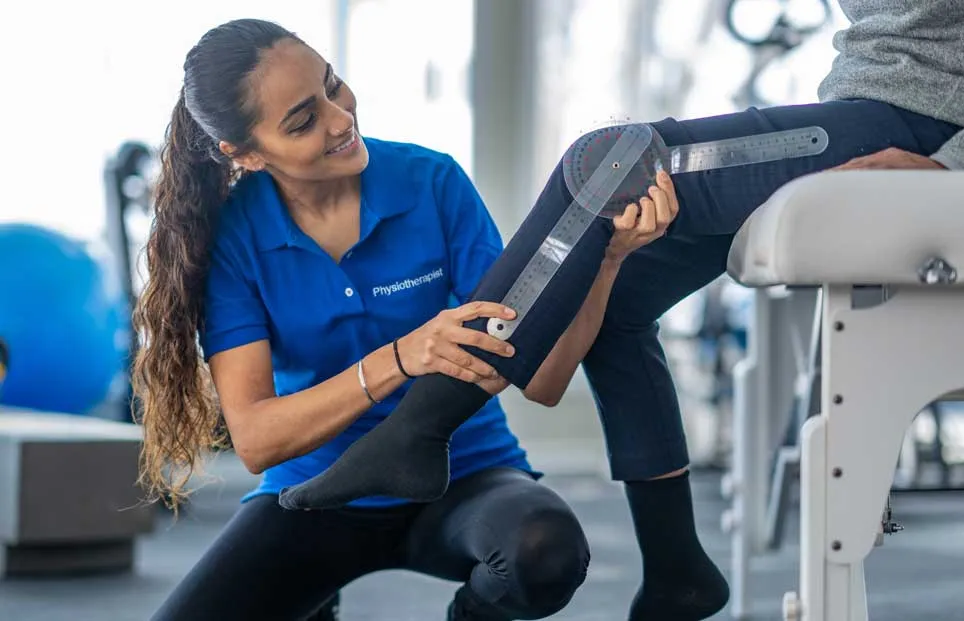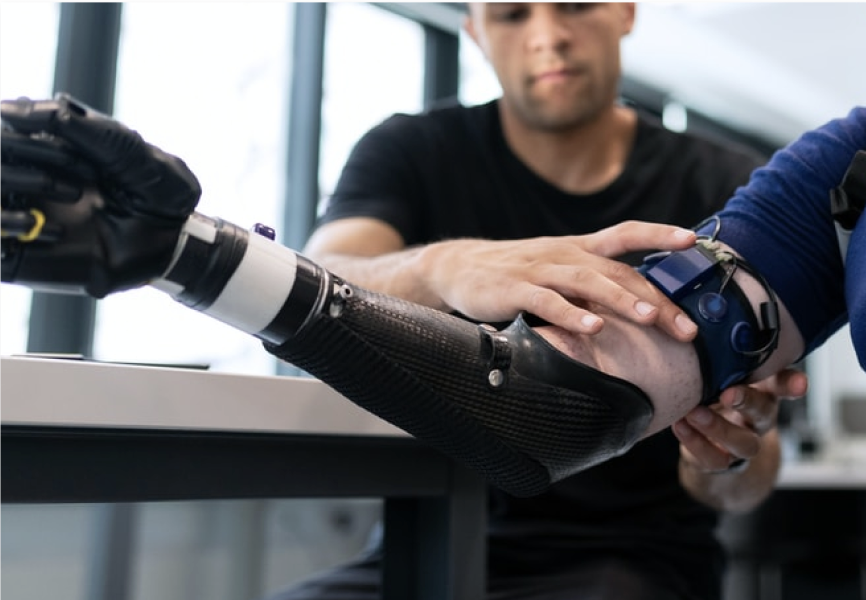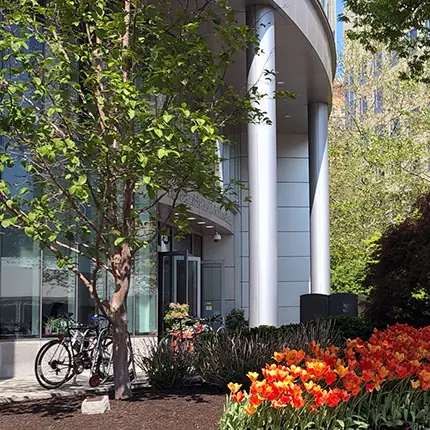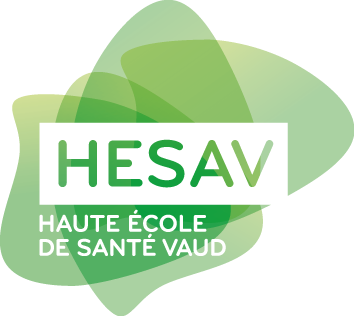YOU ARE BOUVÉ

Learning extends beyond the classroom at Northeastern. Providing students with opportunities for experiential education that links coursework with the real world is central to the mission both of the University and the Bouvé College of Health Sciences.
Our broad mix of experience-based programs build the connections that enable Bouvé students to transform their lives and garner valuable opportunities to practice their profession as members of a healthcare team. These include:
Bouvé students enrich their classroom studies and explore their path by working in professional settings through the University’s signature cooperative education program.


I feel that Northeastern’s network of professionals across the country opens up incredible opportunities to build both personally and professionally within the world of physical therapy.
Students also have the opportunity to conduct research on their own or in partnership with a faculty member. They connect with the community through service learning and other efforts that engage with Boston’s neighborhoods, and they expand their educational boundaries and acquire greater world perspective through global learning opportunities.
We believe strongly in the value of experiential learning, that we require all undergraduates to complete at least one co-op, research, service learning, or global learning experience. See the NU Core requirements.
It’s the Northeastern difference.
Co-op gave me more experience working with patients prior to clinical rotations. Because of this, while on clinicals, I could focus more on my clinical reasoning skills and decision making.
Cooperative Education (Co-op) is a unique program which allows students to alternate periods of academic study with periods of paid employment. We are very proud that we are the ONLY Physical Therapy program in the country that offers co-op.
Post bachelorate students complete 1 six month cooperative education experience in a variety of PT settings including outpatient, inpatient and school-based settings.
Students are able to work as part of a healthcare team and acquire hands-on experience that contributes to knowledge and translates into strong communication and clinical skills. Co-op positions support success in the classroom and develop awareness of the profession of physical therapy.
Although clinical and co-op experiences may seem similar, your role as a student doing clinical experience is that of a learner. On co-op, you are providing a service to an employer and your primary responsibility while there, is to fulfill the duties outlined in their job description.
| CO-OP |
|---|
| Student is a worker first. |
| Job descriptions are designed by the employer in consultation with co-op faculty first to meet staffing needs of the employer and then the learning needs of students. |
| Co-op experiences are planned by the student in consultation with co-op faculty. |
| Co-op responsibilities are assigned by supervising staff on-site and are part of a job description. |
| Student is referred for job interviews by co-op faculty and is hired by the employer. |
| Student is supervised by co-op site staff. |
| Student’s job performance is evaluated by the co-op supervisor. |
| Student must meet the objectives of the job description and the staffing needs of the employer. |
| Student receives a satisfactory/unsatisfactory grade. |
| Student’s co-op performance is documented on their transcript. |
| Student does not pay tuition for the co-op work period but is still considered a full-time student. |
| CLINICAL EDUCATION |
|---|
| Student is a learner first. |
| Courses are designed by college faculty to meet the objectives of the curriculum and professional accreditation standards. |
| Clinical experiences are planned by the basic college faculty. |
| Clinical activities are assigned by the college faculty as part a course requirement. Students are supervised by licensed physical therapists off-site. |
| Student is matched to a site by college faculty. |
| Student is supervised by clinical instructors or staff in consultation with the faculty. |
| Student’s clinical performance is evaluated by clinical instructor and the college faculty. |
| Student must meet the objectives of the appropriate clinical education course. |
| Student earns a satisfactory /unsatisfactory grade for a particular course. |
| Student earns academic credit. |
| Student pays tuition for the academic study period. |
I believe the clinical experience you gain from Northeastern and extra time spent in clinics sets Northeastern students from non-Northeastern students. It provides chances to network and make connections which you cannot get anywhere else. In the Boston area, almost every workplace has someone either from Northeastern or who knows someone from there.

An integral component of the Doctor of Physical Therapy (DPT) curriculum is service-learning. Through this experience, students engage in hands-on service roles to learn about and apply course concepts while intentionally addressing the needs of community partners.
With the support of the University’s Center for Community-Engaged Teaching and Research, the DPT program collaborates with approximately 15 community agencies, organizations, and non-profits for this experience.
These partners serve the diverse and under-represented communities surrounding the University including Roxbury, Chinatown and the South End among others.
Students conduct programs designed to promote physical activity and fitness for people of all ages and abilities. Students are guided to reflect upon their learning through service and classroom connections. Consistently, these reflections reveal profound personal and professional growth in areas such as effective communication, leadership and core values of the PT profession including cultural humility, social responsibility, integrity and excellence.

The Northeastern University Department of Physical Therapy, Movement, and Rehabilitation Sciences and Haute École de Santé Vaud (HESAV) International Annual Conference provides an opportunity for a global learning experience between Physical Therapists in the United States and Switzerland.
During this collaborative conference, participants attend presentations and observe demonstrations and simulations to strengthen their understanding of professional practice with colleagues from different cultures and backgrounds.